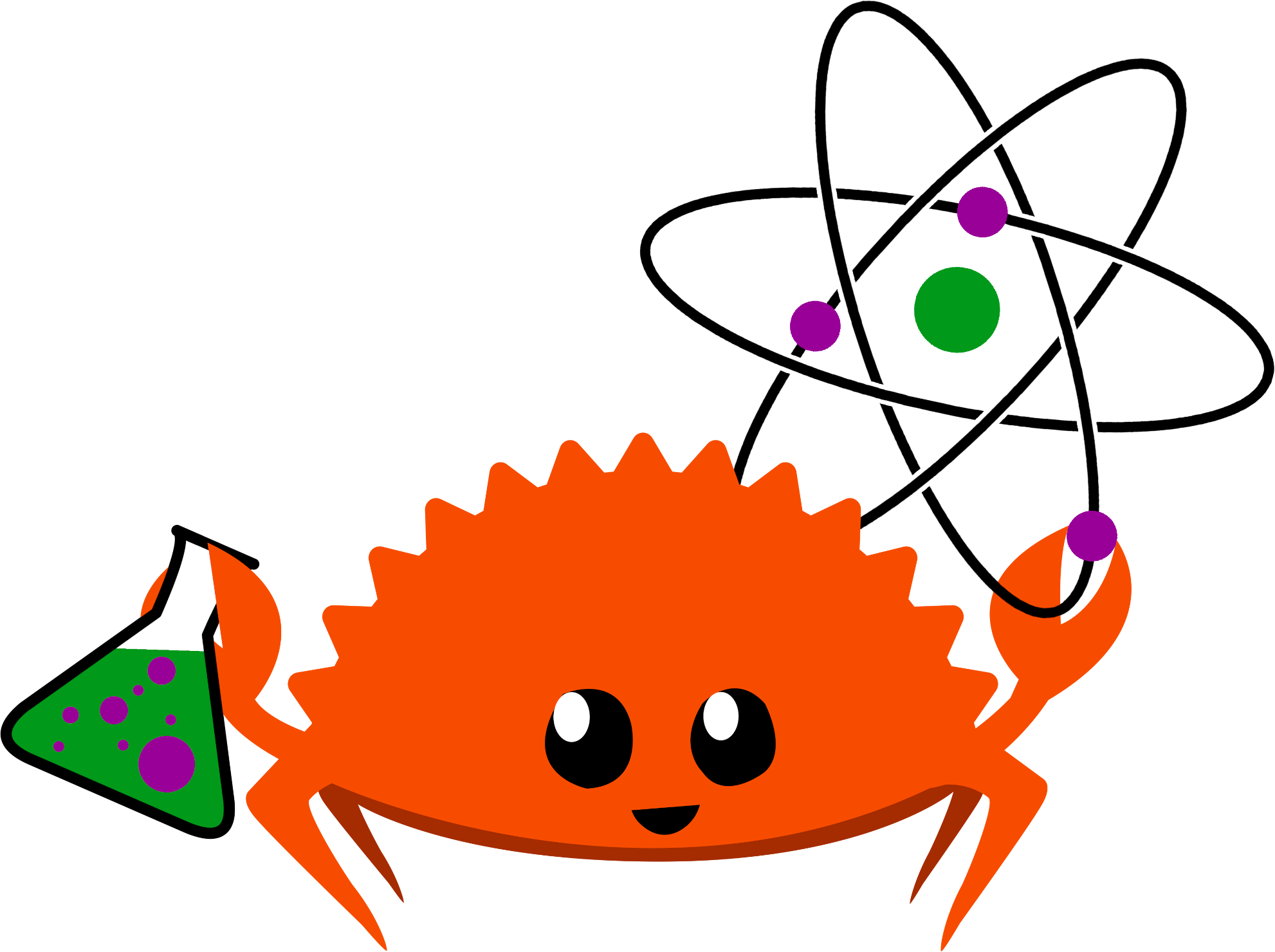Scientific Computing in Rust Monthly #11
Welcome to this month's issue of Scientific Computing in Rust Monthly.
Scientific Computing in Rust Monthly can be viewed online at scientificcomputing.rs/monthly, you can sign up to receive an email copy at mailinglist.scientificcomputing.rs, or you can subscribe using the RSS feed at scientificcomputing.rs/monthly/rss.xml.
Items can be added to the next issue of the newsletter by opening a pull request to the Scientific Computing in Rust Monthly repository on GitHub. You can find more information about adding items here.
Crate of the month: Rayon
Rayon is a data-parallelism library that helps users to convert computations from sequential into parallel. If you've not used Rayon before, we recommend starting by watching Gonzalo Brito's talk about using Rayon from Scientific Computing in Rust 2023.
New releases
argmin 0.11.0
argmin is a pure Rust library for numerical optimization.
This release includes various bug fixes and improvements. With the release of argmin-math 0.5.0, argmin now supports new versions of ndarray and nalgebra versions as well as faer.
linfa 0.8.0
linfa is a Rust crate that aims to provide a comprehensive toolkit to build Machine Learning applications with Rust.
This release includes new algorithms, improvements to existing algorithms, various bug fixes and support for ndarray 0.16.0.
globalsearch 0.3.0
globalsearch is a Rust library for global optimization.
This release includes new Python bindings and support for new local solvers as well as various bug fixes and improvements.
Help wanted
InstrumentRs
InstrumentRs is a library in early-stage development that provides a framework for communicating with scientific instruments and equipment. The main goal is to provide a simple framework with good templates to rapidly develop new drivers to control instruments with Rust. Many design and direction questions are open, e.g.:
- Should we provide synchronous or asynchronous drivers?
- Could we provide both?
- Should instrument control, e.g., for individual channels of a device, be shareable between threads/tasks?
- How can we make the library such that
stdis optional and drivers would work as well on embedded devices?
If you are interested in driving scientific equipment with Rust, please check out the repository, join existing discussions, and/or open new ones to discuss ideas! Any help, ideas, questions are welcome and help!
multicalc
The main goal for multicalc is to provide high accuracy solutions for single and multi-variable calculus. We're looking for contributors who enjoy doing math, and love writing rust. The github repository has an extensive README and a comprehensive suite of tests.
If you are interested in helping, please check out the repository, join discussions, and/or open new ones to discuss ideas! Any ideas or questions are welcome!
Scientific Computing in Rust newsletter editors
We're looking for an additional 1-2 people to become editors of this newsletter. Being an editor of the newsletter means taking charge of putting together an issue of the newsletter every few months, by encouraging and reviewing items added by the community. If you're interested in becoming one of the editors, please email Matthew Scroggs at rust@mscroggs.co.uk. If you have any queries or questions, you can email or message Matthew on the Rust-SciComp Zulip chat.
